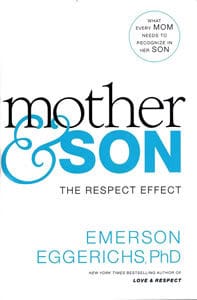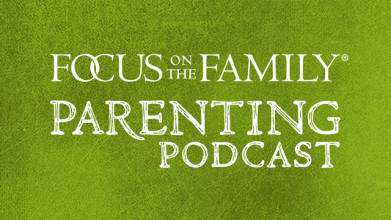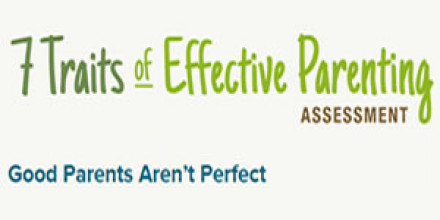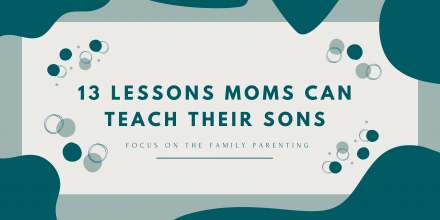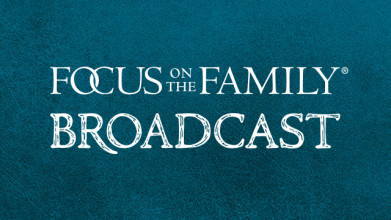Previews:
Dr. Emerson Eggerichs: Ask the question, is that which I’m about to say or do going to feel or sound respectful to my son? He may not deserve it. We’re not talking about him deserving. We’re talking about the fact that he needs something from you that only you can give him.
End of Preview
John Fuller: That’s Emerson Eggerichs, and you’ll hear more from him today on Focus on The Family. Uh, he’ll be offering help with the mother-son relationship. Your host is Focus president and author Jim Daly. And I’m John Fuller.
Jim Daly: And we’re coming back to a great discussion for moms in particular. If you missed last time, I would encourage you to listen to part one of the broadcast or get the entire conversation on CD. The discussion is based on Emerson’s book Mother and Son: The Respect Effect. And I learned a lot on this topic from Emerson. And I think you will too as we continue.
John: Mm-hmm. And Dr. Eggerichs has helped transformed countless marriages through his Love and Respect Conferences. And he sure has helped a lot of parents through speaking and writing as well, including, uh, that book Mother and Son: The Respect Effect, which we have here at the ministry. Just stop by focusonthefamily.com/broadcast or give us a call. Let’s go ahead now and hear day two of the conversation with Dr. Emerson Eggerichs.
Jim: Emerson, welcome back.
Dr. Eggerichs: Oh, thank you.
Jim: Okay. I am like, you know, a kid at a smorgasbord now. I mean, this is such good material. I was, uh, thinking about it all night, uh, about applying these things in different ways. And I’m sure many of our listeners who were able to listen last time have done the same thing. Let’s kind of restate some of the things from last time and then we’ll get into the new concepts that you’re talking about in your book, Mother and Son: The Respect Effect. That innate ability of a woman to look at herself first. I mean, it is something I see in Jean all the time, where she’s loading up guilt because something didn’t go right. You were very strong yesterday saying, “Moms, don’t do that.”
Dr. Eggerichs: Mm-hmm.
Jim: Um, we know you’re gonna look to your own heart first to say, “Look how I’ve blown it. Look, I’ve shamed.” Uh, reiterate that important point for moms not to go down that alley, which could be really destructive.
Dr. Eggerichs: Right? Well, and the point applies because we’re saying that boys need a mother’s respect. And at first that seems counterintuitive. It’s countercultural. Wait a minute, I need my son’s respect, I can’t believe you’re saying (laughs) I gotta respect my boy, cause he’s doing things that are not respectable. He’s not being obedient to me. And so… But it was Sarah my wife, as well as hundreds of mothers that began to put me on to this when they began to apply this teaching that we’ve had in marriage, that when a wife puts on a respectful demeanor toward her husband, that man softens, moves toward her and connects, which is the longing of every woman’s heart. And she began to apply it to her boy. And they began to write me. And so when I wrote this book though, I realized, I know that many mothers, “Oh, I have been so disrespectful. Oh.” And then she starts replaying her mind all these scenes where she’s blown it. And now she’s thinking, “I’ve ruined him, I’ve ruined the family, I’ve ruined everything, I’ve ruined the cosmos.” And she moves into the self-deprecation. So, one of the things I want to encourage her to do is, we need to work together here. This is not for the purpose of you going into that. We’re just talking about adding a few vocabulary words to your love, and to keep doing what you’re doing, but make some adjustments and meet a need here that we think has been removed from the parenting radar screen with regard to a boy’s need to feel respected for who he is, apart from his performance. And that doesn’t seem-
John: Hmm.
Dr. Eggerichs: … logical or right. And so this is a niche that we’re bringing into this. But mothers can move into this, “Oh, I’ve blown it.” And I’m saying, let’s backtrack on that. Let’s just see it as a slight little adjustment and watch the big results.
Jim: Emerson in fact, you help us by understanding this in a couple of concepts in your book. One is the guides principle and chairs.
Dr. Eggerichs: Right.
Jim: We don’t wanna get locked into all of the description because it is meaty. You know, Paul talks about not being on the milk of the word, but the meat of the word. I think for parenting, you’re into the meat of what it means to be a mom. And, uh, I would wanna point people if you wanna get more of that description, go to the website, and we’ll post that there. But briefly talk about, um, what the guides principle is, and what chairs-
Dr. Eggerichs: Right.
Jim: … is.
Dr. Eggerichs: Guides and chairs are two acronyms. And I had the privilege as I mentioned before, to study the Bible 30 hours a week for nearly 20 years. And I looked at everything in the Bible on parenting. Not just principles that would apply to parenting, but what has God said to a father, to a mother? And I worked really hard in putting it together in an acronym guide, G-U-I-D-E-S. That parents should be giving, understanding, instructing, disciplining, encouraging and supplicating. We won’t go into that. But that’s God’s call on a mom, that’s God’s call on a dad. And he wants us to do that. And we do that under him. But then I looked at another acronym chairs C-H-A-I-R-S, which I looked in scripture, what does God say to us about male and female? For instance, “Act strong, be like men.” Well, what does it mean to be strong like men? There’s no statement be strong and act like a woman. What is God saying to us? And I work very hard then taking those salient scriptures that deal with masculinity as well as femininity, but in this one masculinity, and came up with chairs, C-H-A-I-R-S. And there are things about a boy that are very masculine. And when you understand what God is saying, you can then speak into that with what I call respect talk, and that boy spirit will soften, he will look at mom and move toward you to connect, which is the longing of your heart as a mother.
Jim: Cover the chairs though, its conquest, um-
Dr. Eggerichs: Hierarchy-
Jim: Hierarchy.
Dr. Eggerichs: … authority, insight, uh relationship and sexuality.
Jim: And these are the things that you know a boy is thinking about, behaving like or toward and-
Dr. Eggerichs: Correct.
Jim: … it’s important for a mom particularly to understand how their boy is thinking. Right?
Dr. Eggerichs: Yeah. For instance, conquest, that doesn’t sound you know, like, that’s very inviting. But Adam was created in Garden of Eden, and before he was designed, before the fall, and he was to cultivate and maintain the garden. And he was designed by God to work in the field, and he’s cursed in the field. She’s cursed in the family. But I always say, what’s the first question every man asks another man with me for the first time? What do you do?
John: What do you do? Yeah.
Dr. Eggerichs: This is inherent within us. And it doesn’t mean that women aren’t gonna ask that question. But they’ll tend to look at the ring, they’ll go relationally. Are you married? Do you have children? Even a CEO of a corporation will still look around and she will talk relationally. It’s the way she wants to do it. It’s not a matter she can’t do the other. And we are more focused here. Well, what does it mean for your boy then to grow up to work in a field? What… How’s he processing conquest? When he’s making the Legos, what- what’s he trying to achieve? What’s he doing. And the book unpacks each of those concepts and coaches a mother what she can say when she notices something and use the word like, I really am proud of you here, or I appreciate that, or I value you, or I respect you. Or let’s just take an insight, which is the I of chairs. Here’s a mother who applied this and she wrote me, and she said this, and it’s very, very powerful. “When my son gives me his insight, I say, I really respect what you have to say. Or I say, I respect the way you handle that situation. Or I really respect how you’re taking initiative to get things done and follow through with.” She said, “These things have made my son smile like I have never seen. I talk more about respect with regard to sporting events and showing respect for other opponents. My son knows without a doubt that I love him. Now I feel he knows that I value him and his ideas, which I may not have done so well in the past. Thank you for sharing God’s message.”
Jim: What are some of those desires that boys have in that relationship with their mom?
Dr. Eggerichs: Well, they have several. They have as we talked about in terms of that C-H-A-I-R’s and I’ve written this several times in the book, but she needs to know that he needs to know that she respects his desire to work and achieve. That’s the C, respect his desire to provide, protect and even die. I mean, a five-year-old little boy said to his mommy, “I’ll protect you, mommy.” And some others laugh at that. But no, there’s something going on there-
Jim: Huh.
Dr. Eggerichs: … and need to honor that. Why does he put on the Superman outfit? What’s going on? You can speak to that. You’re a strong man. Feel his muscles, let him flex. You’re a strong man, you protect women and the innocent. Why do boys build the forts? Why do they pick up sticks to fight? We think, “Oh, they’re gonna become violent.” You ask every little boy who’s building a fort and he’s got these swords out there. He’s protecting the innocent from the evil invaders. He is doing a righteous deed. But we’re labeling that in a way that is though somehow, we need to indict him, you know. (Laughs).
Jim: Well, that’s that effeminate culture aspect-
Dr. Eggerichs: Yeah.
Jim: … that you’re talking about.
Dr. Eggerichs: The effeminization of the male, making him soft. Uh, respecting his desire to be strong and to lead and make decisions, has that authority. Respecting his desire to analyze, solve and counsel. Respect his desire for shoulder-to-shoulder friendship. And I’ve coached mothers in this. Mo- moms wanna talk. S- Sarah, my wife talks about the 100 questions she would ask (laughs). At least 20 questions every day when the boys would come home. And finally David, after several days, “Mom, it’s the same at school every day. If anything changes, I’ll let you know.”
Jim: (Laughs). Yeah, right.
Dr. Eggerichs: And so they’re asking questions, asking questions, and I say to mom, “When the two boys are out playing catch, just go out there, take a chair out, not iPhone, have nothing going on. No recipe book, no nothing. Sit there and just watch them play catch for 15 minutes, don’t say a word. Just watch them. And then I want you to just watch them. They’ll be making eye contact at you, throwing and you know, running get the… They’ll… Whatever they’re gonna do. Now, you get up, go into the house, evening meal, whatever. Now, call them in, tell them to go upstairs, make their bed that they didn’t make, wash their hands and face and clean up their room and come down to dinner. It’ll all be done. So what you’ve done is you’ve energized them, you’ve made a deposit in their spirits just by what we call the shoulder-to-shoulder activity. See, mothers feel we’re only connected if we’re talking face-to-face, and he shared with me what his day was all about. Well, daughters will do that, but boys are a little bit different. So, what you wanna do is meet his need not just be reassured that everything’s okay between you. Do it the shoulder to shoulder. And I coach mothers on this, and women are writing me, “This is unbelievable. Why hasn’t anybody told us this?”
Jim: Well, or they’re thinking, that’s really hard to do.
Dr. Eggerichs: Well it’s not hard to do-
Jim: I’ve got my… I’ve got my task list.
Dr. Eggerichs: Well, that’s exactly right.
Jim: (Laughs).
Dr. Eggerichs: It’s not hard to do-
Jim: I can hear Jean. (laughs)
Dr. Eggerichs: … it just seems. Yeah, it just-
Jim: (Laughs).
Dr. Eggerichs: … It seems like this is not producing any quality in our relationship. This is not quality time.
Jim: It’s a waste of time.
Dr. Eggerichs: Exactly. But that’s if we filter through the feminine grid again. If we… And that’s what you’re pointing out. and it’s not to indict the feminine, we need to honor that, exalt all of that. But what we’re reminding us, Jesus said, “Have you not read he who made it from the beginning made them male and female?” And though we’re equal, we’re not the same.
Jim: Hmm.
Dr. Eggerichs: And we need to understand then what is different about our boy? And does he have a need that we’re maybe not paying attention to? And I’ve written this book to say, it’s a huge need. And when you meet it, he softens and connects with you and he gets affectionate with you, generally speaking.
John: This is Focus on the Family and the book that is really the foundation of our conversation today is from Dr. Emerson Eggerichs. It’s called Mother and Son: The Respect Effect. And we have that here, just stop by focusonthefamily.com/broadcast. Or call 800, the letter A, and the word FAMILY. 800-232-6459. Let’s go ahead and continue this conversation, here’s Jim Daly.
Jim: Emerson, in the last portion of the program, I wanna get to some real practical respect talk at every level of development, toddler, teen and everything in between. Before I do though, you mentioned the right outcome. And for that mom who has tried different things, maybe she’s even innately tried some of the things that you’re talking about, but it hasn’t worked.
Dr. Eggerichs: Mm-hmm.
Jim: She hasn’t received the response from her son, maybe it’s just years of antagonism between them. Um, do you have examples where it’s taken much more than what you’re describing to heal that relationship because of the wounds-
Dr. Eggerichs: Mm-hmm.
Jim: … between them both?
Dr. Eggerichs: Mm-hmm.
Jim: Describe that environment where it’s much harder than just a simple phrase.
Dr. Eggerichs: Right. Right. The challenge for all of us is to step back for a moment and say, “Look, whether or not my son responds to this…” Or let’s put it by way of analogy. A father is to be loving toward his daughter, whether or not she rebels and gets into drugs or whatever, that he can be a very loving father apart from the outcome in her. So, to moms, your son may not respond immediately, there could be any number of things that are going on, he could be addicted, he could be lying. I mean, there… We all know. I went to military school for five years from eighth grade to 12th grade. Five years of my life. And it had nothing to do with my mom.
Jim: (Laughs).
Dr. Eggerichs: It had everything to do with me. And so, one of the things that I wanna say, you stay the course on this. This is about meeting your son’s need, whether he appreciates it or not. This is about you being a respectful woman of God, whether your son is responsive or not. Don’t give into contempt and disrespect and communicating that way with the hope that somehow, he’s gonna repent, that would be using unholy means to achieve a very worthy end. So my challenge, stay the course, do this under Christ and just trust that what we’re saying here is correct. Because mothers love to meet a need, and you’re meeting your son’s need to be believed in that you honor his heart, and you believe in him more than he probably believes in himself right now. And I believe if anything’s gonna cause him to turn the corner, it’s that. I do not believe boys will return home to a mother who has nothing but contempt and feeling that she despises him because he’s humiliated her and shamed her and made her feel that she’s a failure as a mother, and as a woman.
Jim: Emerson, that is so powerful. You’re right on the money again, because I think of the many stories I’ve heard where you’ve had a prodigal child. And what brings that child back over the long-term, usually when they’re an adult, will be that consistency of love that they felt from mom and dad. And if it’s not there, the chances are, it may not happen. And so I love that. Keeping that tether of love tight, because that’s the testimony that we receive in the end.
Dr. Eggerichs: Mm-hmm.
Jim: That I came back to my mom because it just was so obvious how much she cared about me.
Dr. Eggerichs: Yes. And-
Jim: And it took me time to figure that out.
Dr. Eggerichs: And I would add to tether of respect and honor, because we again, we default to the love component. Mothers are loving. We’ve got a good friend right now her son, uh, is in prison. And she’s continued to apply this. And this is a man in prison, will be there for many years, but his attitude toward his mother, he got addicted. And it wasn’t anything to do with her. He got himself in a mess and he’s an addict. But because she’s honored his spirit-
Jim: Hmm.
Dr. Eggerichs: … even though she’s been humiliated by what has happened, the family has, the sorrow that they’re experiencing, his own regret, his own guilt. She has given voice to these principles, and this son is connected from behind the walls, the prison bars, but she has a relationship with her son-
Jim: Yeah.
Dr. Eggerichs: … because of this.
Jim: That’s powerful. That’s so good. Hey, we do wanna get practical. So let’s talk for the remaining minutes about how to deal with, um, I guess you’d say the phases of childhood. So that toddler, uh, to try to get these points across. Maybe that toddler just hit his little sister or (laughs) something. How does mom engage that little boy to say, “Johnny, that’s not what we’re gonna do?”
Dr. Eggerichs: Yes. You’re an honorable young man. And honorable men do not do this. Your daddy doesn’t do this. You’re honorable. Now, on the inside, mothers think, well, a three-year-old, four-year-old isn’t gonna understand that concept. This is what’s blown away. Does a little girl understand when Daddy says I love you?
Jim: Absolutely.
Dr. Eggerichs: She surely does. And mothers were testing this out. “I don’t think that my boy would respect me.” And this mother had a two-year-old and a four-year-old and she was putting them to bed, and she decided to apply this, and she has a psychological background. She’s a psychologist. So she said, “Brendon, I really respect you.” And she thought that he would say, “What do you mean?” She said he sat up and he said, “Thank you, mommy.” And he would always echo. She said, “I love you.” And he was say, “I love you.” She said, “I respect you.” He sat up and said, “Thank you.” And she said, “He understood what I was saying.”
Jim: Hmm.
Dr. Eggerichs: Now, it’s still an abstract concept. So I’m not going to debate that always. But if she uses the language with that toddler, it’s not honorable. It’s not honorable to hit your sister. Just keep on that message.
Jim: Hmm. That is good. Let’s move it to grade school. Maybe it’s getting a little more serious now that chores aren’t being done. You haven’t experienced this have you John?
John: Never in my life.
Jim: We’ve never experienced this-
John: (Laughs).
Jim: … for the 1,000th time. Can you take that trash out and put it in the garage big can?
Dr. Eggerichs: Right.
Jim: I mean, that’s my mantra.
Dr. Eggerichs: Right.
Jim: “Oh, yeah, dad will do it.” Then an hour later.
John: Still waiting.
Jim: “Why is the trash still here?”
John: Yes, yes. (Laughs).
Jim: Talk to that mom-
Dr. Eggerichs: Yes
Jim: … who’s struggling with chores.
Dr. Eggerichs: Yes. Well, first of all, there will be no perfect children, there was only one perfect child.
Jim: (Laughs).
Dr. Eggerichs: And so you know, you didn’t, uh, have that perfect child. So, there… We’ve got to allow for, uh, some degree of independence. Jesus said, a boy is gonna leave father and mother. And so as I say, you control during the toddler years, but then you have to move into counsel from you know, those teen years, because you can’t control them 24/7. And then there’s the casting off. And you want to develop this boy to finally leave home. Okay? And so there’s gotta be some allowance for him to, you know, wiggle a little bit. But on that point, you ask the question, you know, I’ve asked you multiple times to take the garbage out. I understand it’s a hassle and I know they’re more e- exciting things to do. But you said you would do it. And I see you as an honorable man of integrity. And help me understand this. Because I believe in you and I believe you’re becoming this man of honor, I, I need you to be honorable and follow through on your word here, even though it’s a hassle. But you tell me how can we solve this problem? He’s like-
Jim: You’re putting it on their honor to do it. I like that.
Dr. Eggerichs: Yeah, as long as we don’t use this as a club-
Jim: Right.
Dr. Eggerichs: … we have to figure out… That is why I say what battle do you want to fight here? Is it the garbage battle? Or is it another one? You know, but there has to come that moment when we ask that question, we put the, the problem back on his shoulder. You coach me here, if you were dad, what would you say to you? Because I see you as an honorable man. And yet, it’s almost like you’re not honoring me. You’re not respecting me. Have I done something that has caused you not to wanna respond to me? Help me understand where am I failing as a parent. Help me with my feelings.
Jim: So, you’ve kind of covered that tween message as well, um, in terms of respecting each other, and then that teen message when maybe they’re coming home late, blowing curfew more often than they should, uh, dig into that a little bit. A little more intellectual discussion. Uh, what I’m finding as the teens get older, is their rationales become a little more difficult to debate. You know there’s, uh, reasons why these things aren’t happening. And you began to get into these lengthy debates rather than your instructions being followed. Uh, speak to that issue of the debate season of teenhood.
Dr. Eggerichs: Right. Well, and that’s where the debate cannot get down into the gutter where you are showing disrespect toward the spirit of the individual. There has to be an appeal. Jonathan and David, you know, as they went through those teen years, that I tried to remind myself, “Okay, this is gonna be a discussion here of man to man, we’re gonna talk honorably with each other, respectfully with each other. I said to David, there were times he was pushing the limits and I have a circle that I drew, you have authority of father, you have the freedom of the son, and you have the responsibility. So I had authority, freedom, and responsibility. And I said, “Son, I know you want more freedom, and you really don’t want my authority. And yet you want me to be responsible for you. I will tell you, you can have total freedom and come out totally from underneath my authority, but you have to be 100% responsible for yourself.
Jim: Hmm.
Dr. Eggerichs: And you don’t want that because you want things that I’m responsible for you, I get that. But you want more freedom. All I can say is we’re gonna have some tension here. And this tension is healthy. But in a few years, you’re gonna be outside the home. So now let’s talk how can we honor each other?”
Jim: Yeah
Dr. Eggerichs: “You know, we have a curfew. I know that feels limiting to you. But we live in fear when you’re not here. So how can you serve us? How can you honor us even though you feel this is unfair? Talk to me. I know you feel this is unjust. I know you feel this is unfair. I know you feel I’m dishonoring you, but I feel it is fair, it is reasonable, it guards your mom and my heart from feeling fear. And I feel you’re honoring us. So, now how can we create win-win? Help me.”
Jim: I like that. It’s rational and it’s calm. You flipping to the dad conversation there. But let me ask this question. Um, when can mom say and when should she say, “Honey, I need your help here.” Cause he’s typically you know, (laugh) oblivious to some of this. I know one of the funniest things that goes on in our house will be one of my boys standing five feet from me and Jean will direct the instructions through me to him. And I’ll say, “You know he’s standing right here.” (Laughs). You know?
John: So she’s saying, would you just make-
Jim: Yeah. “Can you have Trent do the dishes?”
Dr. Eggerichs: (Laughs).
Jim: Okay. “Trent, would you do the dishes?” (Laughs). And he’s going. “I can hear you, mom.” (Laughing). What is that dynamic?
Dr. Eggerichs: Yeah. Well, she-
Jim: (Laughs).
Dr. Eggerichs: She’s perhaps feeling that her authority is not being used with Trent. He’s not responding to her, so she’s going to use your authority to make sure this gets done. I’m not quite sure of all the dynamics there. But I think to your point about what can a mother do. I think, again, if a mother is afraid, let’s say that curfew issue again, she can appeal. “You’re 17 and you know, I need your strength, son. Because when you don’t get in on time, I begin to worry-
Jim: Hmm.
Dr. Eggerichs: … I begin to be afraid.
Jim: That’s powerful.
Dr. Eggerichs: And I think you’re gonna… That you’re dead. And I know that you’re going to tell me, ‘Mom, you shouldn’t feel that way.’ I know I shouldn’t feel that way. But I need your strength here. I need your leadership. I need you to help me. Okay? I need your home by X, Y, Z time. See, there comes a point when we shouldn’t be afraid of being vulnerable with our children as they move into that young adulthood thing. Appealing to them. But appealing them based on our need. If mom really is afraid, then why not give voice to that? Rather than saying, “Young man, you’re being disrespectful and you’re not honoring and you’re…” And moving into that condemnation again and shaming him because he’s not responding to your authority leadership. Is that really the route here? Is that really what you want? “No, I’m afraid that he might die in the road when he’s not home.” Okay, then let’s go there with that and then appeal to him to serve you and watch what happens. Now, will every boy, do it? Now, if he’s addicted, if he’s into sex, he’s doing things. We, we live in a very real world where there are a lot of temptations and he’s gonna give into those temptations and it’s gonna override his mind that says, “I ought to obey mom and dad.” And you’re going to have to deal with that situation. And I deal with that in the book on discipline and consequences. But begin with what we’re saying right now. Appeal to a strength, appeal to that sense of honor.
Jim: That’s good. That is so good. E- Emerson, before we go, I mean, one of the cultures greatest questions right now are the kind of the late blooming of boys to men. I mean, the 20 something that is living in his mom and dad’s basement perhaps, uh, doesn’t seem motivated, playing video games way too much, uh, is arriving at adulthood maybe 5 to 10 years later than men used to. Speak to that mom who’s got that son in that phase of life where they’re just not sure what to do. Um, what would you say to her?
Dr. Eggerichs: Well, I think, again, this is one of my concerns that I think this we talk about the soft male, or we talk about this boy. And is he lazy, is he flawful, is this something that’s evidence of a poor character quality? Or does this reinforce my message? He’s afraid, because all the messages out there are opposite of C-H-A-I-R-S, that he doesn’t have it in him to-
Jim: Right.
Dr. Eggerichs: Conquer. He, he really doesn’t have that strength to provide and protect. He doesn’t have strength of leadership; he really doesn’t have a lot of insight. Uh, he’s really not a person you want to have a good friendship and relationship with. And he may not, you know, have, uh, right perspective on human sexuality. And he’s beginning to… he’s a Christ follower, beginning to feel like is he really a man? Does he really have what it takes? Can I really enter that adventure and make a difference in the field that perhaps God wants me in? And many will pull back out of fear. And so the real question is, can a mom begin to speak into that and say, “Honey, I do believe in you. I believe that God has a call on you. I believe there’s something that he has for you. I’ve been praying for you for 20 years on that. And I’m fully confident that he’s gonna reveal that. And here’s what I see in you. Here are the desires I see in you. The opportunities aren’t there, but I just need to go on record to say here’s what I believe about you. And if I’d been remiss in saying that, or if I’d been on you to get out there and get a job and somehow you feel that I think you’re a failure, that is not the case. Here’s what I really believe about you.”
Jim: Mmm.
Dr. Eggerichs: And let me state several things.
Jim: Yeah, that is so good. Emerson, I’m leaping out of my chair here. And I hope moms are excited about what they’re hearing because it gives them a pathway to improving the relationship with their sons, because it will feel like you don’t speak the same language and you don’t understand each other. And I’m excited to be able to deliver some hope and help to that mom who is so frustrated. Maybe dads too are… You know, moms are turning to their husbands going, “Help me.” And we don’t understand (laughs) what to say or do. Uh, this is a resource, um, for you particularly, that mom of the boy. And I’m excited that you’ve written this, I’m grateful that you have, I can’t wait to share it with Jean at home, just to help her in her relationship with our kids. Um, this is what you enable us to do here at Focus on The Family. I know that hundreds, if not thousands of moms are gonna contact us and we want you to cause we’re in your corner, we want to put this resource in your hand so that you can do the best possible job of parenting that young boy as you can.
John: What a great conversation with Dr. Emerson Eggerichs, uh, he’s been our guest the past couple of broadcasts here on Focus on The Family. And I’ll encourage you to donate to the ministry and request your book from us. The book is called Mother and Son: The Respect Effect.
Jim: And let’s do this John, for a gift of any amount, uh, we’ll say thank you by sending you Emerson’s book. And you can also stand in the gap for those who may not be able to order this resource. Uh, your generous gift will enable us to send this along to others in need.
John: Donate today, get that book or, uh, ask for the CD of this two-part conversation. Our number, 800, the letter A, and the word FAMILY, 800-232-6459. Or you can donate and get the book and other resources at focusonthefamily.com/broadcast. And as we close one last word from Dr. Eggerichs, uh, for the mom who’s struggling.
Dr. Eggerichs: Ask the question, is that which I’m about to say or do going to feel or sound respectful to my son? He may not deserve it. We’re not talking about him deserving, we’re talking about the fact that he needs something from you that only you can give him.
John: Some great parting advice from Emerson Eggerichs, and once more, it’s been a privilege to have him here on Focus. On behalf of Jim Daly and the entire team, I’m John Fuller, hoping you have a great weekend and inviting you back on Monday, we’ll hear from Allison Bottke. She’ll help you establish boundaries with your adult child as we once again help you and your family thrive in Christ.












